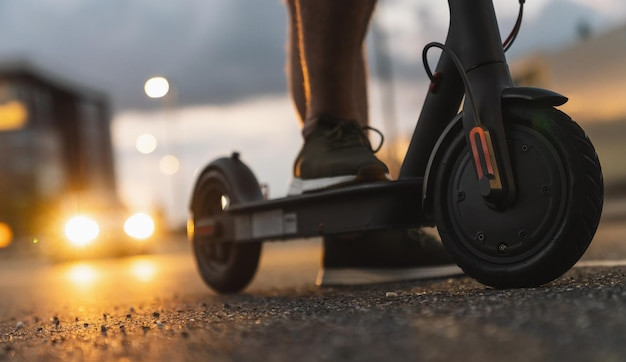Environmental Benefits

Electric scooters and bikes offer a green alternative to traditional gasoline-powered vehicles, significantly reducing air pollution and greenhouse gas emissions. By using electric power, these modes of transport don't pollute, making them an ideal choice for environmentally conscious commuters. Moreover, they require less energy to operate compared to cars, further contributing to environmental sustainability. The widespread adoption of electric scooters and bikes can play an important part in achieving cleaner, healthier urban environments.
Ease of Use and Accessibility

One of the most appealing aspects of electric scooters and bikes is their ease of use and accessibility. Many cities have introduced dockless sharing systems, allowing users to locate, unlock, and rent these vehicles through a smartphone app. This has made them highly popular among both residents and tourists, providing a quick and easy way to navigate through congested city streets. Additionally, their compact size makes it easier to find parking spaces, further enhancing urban mobility.
Cost-Effectiveness
Electric scooters and bikes offer a cost-effective solution for urban travel. The initial investment is relatively low, and operational costs are minimal since electricity is cheaper than gasoline. For short to medium distances, they provide affordable and efficient transportation, especially in cities where parking fees and traffic jams can significantly increase the cost and time of travel. This affordability has made electric scooters and bikes an attractive option for daily commutes.
Safety Concerns and Regulations
Despite their numerous benefits, the rise of electric scooters and bikes has raised safety concerns. Incidents involving collisions with pedestrians, improper riding, and parking have prompted cities worldwide to implement regulations. These include setting speed limits, mandating the use of helmets, and designating specific areas for parking. Ensuring the safety of both riders and pedestrians is paramount, and ongoing efforts to refine regulations and promote responsible usage are essential for the sustainable integration of these vehicles into urban transport systems.
Future Prospects and Technological Advancements
The future of electric scooters and bikes looks promising, with technological advancements helping their performance, range, and user experience. Innovations such as swappable batteries, integrated GPS systems, and improved motor efficiency are making these vehicles more reliable for longer distances. Furthermore, as cities continue to invest in cycling areas and smart city initiatives, the integration of electric scooters and bikes into urban transport networks is expected to accelerate, paving the way for a more sustainable and efficient urban mobility landscape.











Comments
0 comment